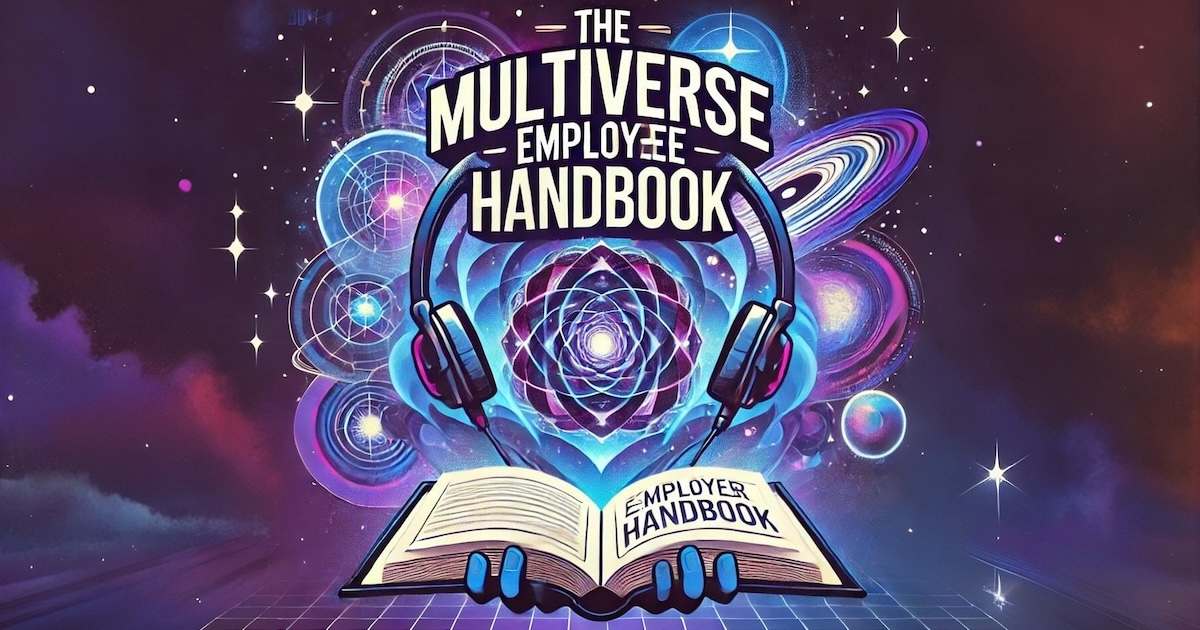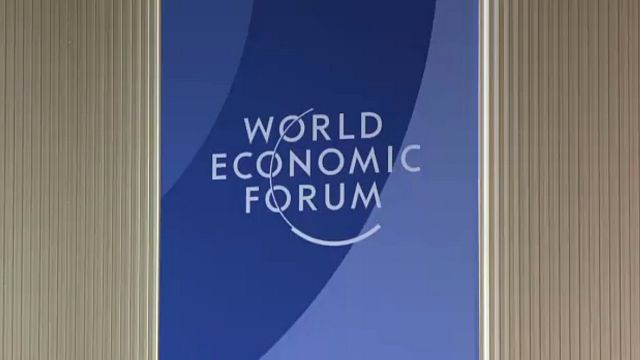Managing Time When Time Doesn't Exist

Temporal Resources: Managing Time When Time Doesn't Exist
June 23, 2025 Physics Time Management Quantum Mechanics Workplace Productivity Emergent TimeThe Ultimate Productivity Paradox
Imagine explaining to your boss why you’re late for a meeting because time doesn’t actually exist. Not in the philosophical “time is a social construct” sense that gets you invited to fewer dinner parties, but in the rigorous scientific sense where quantum gravity’s most fundamental equations contain absolutely no time variable whatsoever. You’d be attempting to justify tardiness using cutting-edge physics to someone whose greatest temporal insight is scheduling back-to-back Zoom calls during lunch hour.
This is the bizarre reality of modern workplace productivity: we’ve built entire industries around optimizing something that physicists increasingly suspect is just a really convincing illusion emerging from quantum entanglement. It’s rather like discovering that all corporate time management seminars have been teaching people to efficiently organize their hallucinations—technically impressive methodology applied to potentially nonexistent phenomena.
The Brief and Troubling History of Temporal Awareness
Humanity has been obsessed with time management for roughly 5,000 years, ever since we started organizing agricultural schedules and realized that planting crops “whenever we feel like it” leads to disappointing harvests and existential hunger. We developed sundials, water clocks, mechanical timepieces, and atomic chronometers, each generation convinced they were measuring something fundamental about reality’s structure.
Ancient civilizations certainly understood temporal sequence. The Babylonians around 1900 BCE created sophisticated calendars for tracking seasonal cycles—essentially agricultural project management systems indicating “plant barley now, harvest later, avoid famine always.” Think of these as humanity’s first attempts at deadline management, though they wisely avoided scheduling meetings during eclipses.
The Maya independently developed extraordinarily precise calendrical calculations, creating temporal frameworks so accurate they could predict astronomical events centuries in advance. However, these remained practical scheduling tools rather than investigations into time’s fundamental nature. It’s the difference between having an excellent appointment calendar and understanding whether appointments actually exist in any meaningful sense.
Newton: The Original Time Management Consultant
Isaac Newton codified humanity’s temporal intuitions into “absolute time”—an invisible cosmic chronometer ticking away uniformly throughout the universe. In Newton’s framework, time was like the ultimate corporate standard: inflexible, universal, and completely indifferent to what anyone was actually doing. Whether you were sitting in a productive meeting or enduring another quarterly review about quarterly reviews, time marched forward at exactly the same rate for everyone, everywhere.
Newton’s absolute time was essentially mandatory punch-clock policy applied to the entire cosmos. Elegant? Certainly. Practical for engineering and navigation? Absolutely. Accurate description of temporal reality? Well, that’s where things get complicated.
This Newtonian perspective dominated workplace thinking for centuries. Time became a resource to be managed, optimized, and allocated efficiently. We developed time studies, productivity metrics, and elaborate scheduling software, all based on the assumption that time was as real and measurable as office supplies or quarterly profits.
Einstein: The Consultant Who Broke Everything
Then Albert Einstein arrived and essentially told Newton’s time management system to update its résumé because it was about to be downsized. Special relativity revealed that time isn’t absolute but relative—it stretches and compresses based on your reference frame. Moving clocks run slower, and simultaneity breaks down completely. Your “9 AM meeting” happens at a different time than your colleague’s “9 AM meeting” if you’re moving relative to each other.
General relativity made scheduling even more nightmarish. Gravity warps time itself, meaning your feet literally age slower than your head. Office workers on different floors of skyscrapers experience slightly different temporal rates—a fact that has yet to be incorporated into most corporate time-tracking software, though it provides excellent justification for requesting ground-floor workspaces.
Einstein’s “block universe” theory suggests that past, present, and future all exist equally in four-dimensional spacetime. From this perspective, your Monday morning meeting, last Friday’s deadline, and next quarter’s goals are all equally real—they just occupy different positions in spacetime’s filing system. This makes procrastination philosophically fascinating but doesn’t help with actual project deadlines.
Quantum Mechanics: Where Time Management Gets Weird
The real productivity crisis emerged when physicists tried merging Einstein’s relativity with quantum mechanics. They discovered something that would terrify any time management consultant: the Wheeler-DeWitt equation—quantum gravity’s fundamental mathematics—contains absolutely no time variable.
This isn’t a minor oversight in cosmic bookkeeping. This is discovering that the universe’s basic operating system was designed without scheduling.exe installed. The Wheeler-DeWitt equation describes quantum states of entire universes, but these states are fundamentally timeless. It’s as if reality is running on software where temporal functionality was never included in the original specification.
The implications for workplace productivity are staggering. If our most fundamental description of reality contains no time, where does our experience of deadlines, schedules, and “urgent” email flags come from? This became known among physicists as the “Problem of Time”—not the problem of insufficient time (though that remains relevant), but the problem that time might not exist at the universe’s deepest operational level.
The Page-Wootters Revolution: Time as Team Project
Recent experimental breakthroughs have validated something called the Page-Wootters mechanism, which suggests that time emerges from quantum entanglement between different parts of reality. For observers inside quantum systems, time appears to flow normally. For external observers viewing entire systems, no time exists at all.
Think of it like the ultimate group project: time only exists when quantum particles collaborate effectively. From inside the project team, you experience sequence, progress, and deadlines. But someone observing your entire team from outside just sees a static, timeless configuration of completed work. Time emerges from correlations between team members, not from any external project timeline.
In 2023, Italian physicist Ekaterina Moreva’s experiments provided direct confirmation of this mechanism using entangled photons. They demonstrated that time literally emerges for internal observers while remaining absent for external ones. We’re not just experiencing time—we experience temporal flow because we’re conscious observers embedded in the same quantum information systems that create time through all physical interactions - from particle decay to continental drift.
Ultra-Precise Clocks and the Quantum Nature of Scheduling
The evidence keeps mounting from increasingly sophisticated timekeeping technology. Modern atomic clocks achieve accuracy where they’d only lose one second in 300 billion years—precision that makes your smartphone’s clock look like a sundial operated by someone with depth perception issues. These “tweezer clocks” combine atomic precision with quantum entanglement, revealing that time measurement itself has quantum foundations.
But here’s the productivity paradox: these incredibly precise clocks are showing that quantum entanglement can enhance temporal precision beyond classical limits, while simultaneously suggesting that time’s deepest nature is quantum information rather than flowing duration. We’re building better tools to measure something that might not fundamentally exist as we think it does.
Meanwhile, cosmological observations have measured time dilation with unprecedented precision, confirming that time was running five times slower in the early universe. This suggests that cosmic productivity has been steadily increasing throughout universal history—though whether this counts as improved time management or fundamental changes in temporal reality remains unclear.
The Scientific Consensus: Time is a Group Hallucination
What makes this development remarkable is unprecedented convergence across theoretical physics. String theory, loop quantum gravity, causal set theory, and emergent gravity models all independently conclude that time emerges from more fundamental quantum information structures. When rival physics theories actually agree on something, reality is definitely trying to communicate important information about its operational parameters.
Loop quantum gravity research shows that time becomes discrete near quantum singularities—composed of tiny “time atoms” that only appear continuous at normal scales. It’s like discovering that your smooth video conference calls are actually composed of discrete frames, but the frame rate is so high you never notice the temporal pixelation.
The mathematical consensus suggests that time is a statistical property, like temperature emerging from molecular motion. Individual quantum events might not have temporal properties—time emerges from quantum correlations between many entangled systems, creating real effects from fundamentally non-temporal components.
Consciousness as Time Management Software
Perhaps most remarkably, consciousness itself might be the mechanism that creates temporal experience through quantum observation and measurement. Every conscious moment generates new quantum correlations that create the illusion of temporal flow. We’re not experiencing time so much as participating in time’s continuous quantum emergence through the act of being aware.
This revolutionizes workplace productivity theory. Your subjective experience that time flies during engaging projects but crawls during tedious meetings might actually reveal something profound about quantum reality. Attention, focus, and mental engagement could literally be altering your participation in spacetime’s emergent structure through changes in consciousness and quantum correlation.
The implications are staggering: every moment of awareness participates in the universe’s fundamental creative process. Time isn’t something that happens to us—it’s something we help create through the magnificent accident of being conscious, quantum beings embedded in an information-rich cosmos.
Practical Applications for Quantum Time Management
So how do you manage time when time doesn’t exist? Here are evidence-based strategies derived from cutting-edge temporal physics:
Embrace Quantum Superposition Scheduling: Since time emerges from quantum entanglement, consider scheduling meetings in temporal superposition until participants collapse the wave function by actually showing up. This reduces scheduling conflicts while acknowledging the probabilistic nature of temporal coordination.
Leverage Consciousness-Dependent Time Creation: Focus and attention literally participate in creating temporal experience through quantum correlation. Engaging work doesn’t just feel faster—it might actually be altering your relationship with emergent time through enhanced quantum entanglement with your tasks.
Accept Entropic Time Arrows: While time might be emergent, entropy definitely increases, giving temporal experience its direction. Align your productivity systems with natural entropic gradients rather than fighting against thermodynamic inevitability.
Implement Relativistic Deadline Management: Remember that simultaneity breaks down in Einstein’s universe. “Due Friday” means different things for people in different reference frames, so always specify temporal coordinates and gravitational context when assigning deadlines.
The Ultimate Productivity Insight
Here’s the profound realization emerging from quantum temporal research: if consciousness participates in creating time through quantum entanglement, then every moment of focused awareness contributes to reality’s fundamental structure. Productive work isn’t just accomplishing tasks within time—it’s participating in the ongoing creation of temporal experience itself.
This makes procrastination not just inefficient, but a missed opportunity to contribute to the universe’s basic operational systems. When you’re scrolling social media instead of working on important projects, you’re not just wasting time—you’re failing to fully participate in the quantum correlations that create temporal reality for yourself and others.
Conclusion: The Time We Never Had
The development of emergent time theory represents humanity’s most sophisticated understanding of temporal reality: we’ve learned that our most precious resource might be something we collectively create rather than individually consume. Time management isn’t about efficiently using a fixed commodity—it’s about consciously participating in the quantum processes that generate temporal experience.
Today, as we obsess over productivity optimization and schedule management, we’re unwittingly participating in one of the universe’s most fundamental creative processes. Every focused moment, every deadline met, every productive collaboration contributes to the ongoing emergence of time itself through quantum correlation and conscious observation.
So the next time someone complains about “wasted time” or struggles with time management, remember: you’re witnessing intellectual difficulties that reflect the deepest mysteries of quantum reality. The difference between productivity and procrastination isn’t just efficiency—it’s the difference between actively participating in temporal creation and passively experiencing someone else’s quantum correlations.
In the grand scheme of cosmic productivity, we’re all just conscious beings learning to create time through the magnificent accident of awareness. We’ve simply gotten significantly better at doing it on schedule.
Though honestly, given that time might be an emergent illusion arising from quantum entanglement, all those hours you spent in time management seminars learning to optimize your schedule were probably… well, let’s just say they occupied a very interesting position in the quantum superposition of productivity and procrastination.
Note from the Department of Quantum Chronology: This guide assumes basic familiarity with the concept of existence within temporal frameworks that may or may not be fundamentally real. Readers experiencing productivity anxiety about managing non-existent time are advised to consult their local physics department, consciousness researcher, or any atomic clock that’s achieved quantum enlightenment. Side effects of contemplating emergent time may include temporal vertigo, questioning the reality of deadlines, and an irresistible urge to explain chronic lateness using quantum mechanics. Please refrain from attempting to schedule meetings in quantum superposition, as it may cause calendar malfunctions and/or local spacetime distortions.
Listen to the episode
What's Your Reaction?
 Like
0
Like
0
 Dislike
0
Dislike
0
 Love
0
Love
0
 Funny
0
Funny
0
 Angry
0
Angry
0
 Sad
0
Sad
0
 Wow
0
Wow
0





































